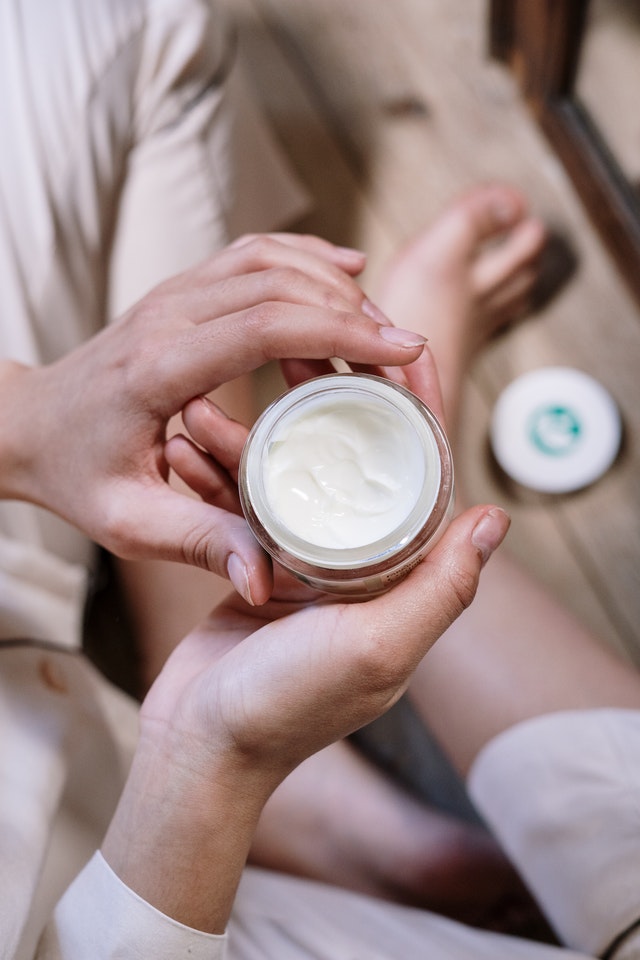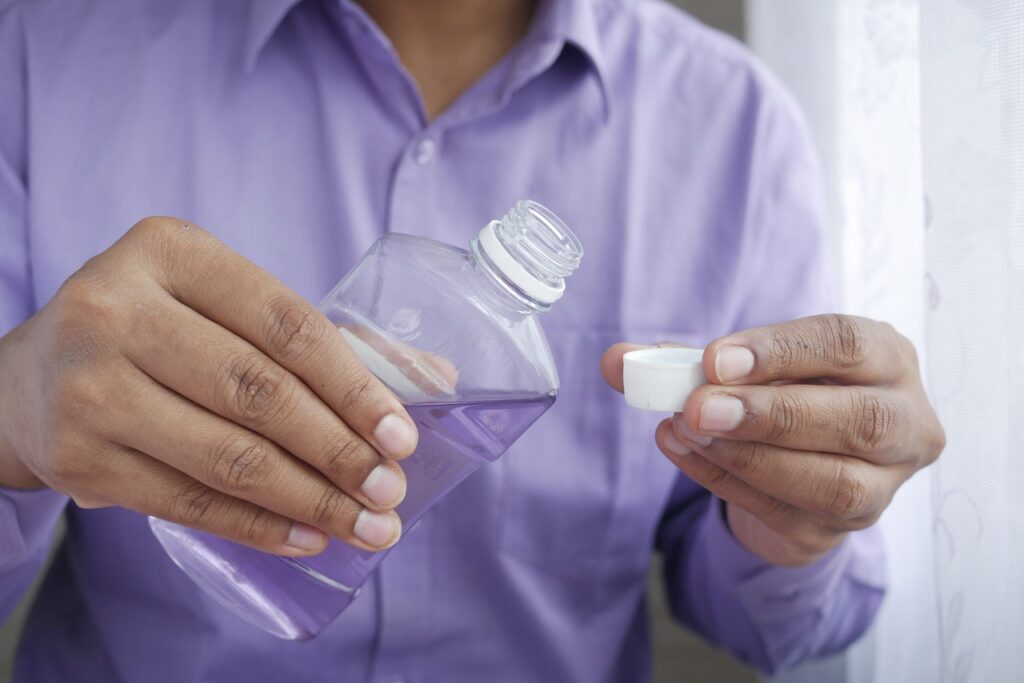by | Mar 31, 2022 | Lifestyle |
Looking after your teeth is, of course, essential, but you shouldn’t make the mistake of thinking that oral health begins and ends with them. A part of the mouth that sometimes doesn’t get the attention it deserves is your gums. However, failing to notice problems with them and not giving them the care they need can lead to problems just as severe, including tooth loss and infection. Here, we’re going to look at why it’s essential to take care of your gums, and just what you can do to look after them.
What is gum disease?
Gum disease is a term that is typically applied to two conditions. The first, and more common, is gingivitis, which is the inflammation of the gums in response to the infection of bacteria on the surface. There are differences between gingivitis and periodontitis, the more advanced form which is also known as periodontal disease. However, gingivitis is when the gums become inflamed and sensitive, which can lead to irritation and bleeding. When not treated, it can lead to periodontitis, which can lead to irreversible damage to bone and other tissue. As such, treating it while it is still in the gingivitis stage is typically the best course of action. But how do you know when you have the problem, to begin with?
Signs you might have it
How do you know that you should be concerned about gum disease in the first place? Thankfully, there are plenty of clear signs that you might notice. The one that most people tend to see first (and might often ignore) is blood when they are brushing their teeth. This is a common experience, but it’s not one you should ignore. Other symptoms are red and swollen gums, gums that are receding from the teeth, as well as bad breath or a bad taste in the mouth on a regular basis. If you see or feel deep pockets between your teeth and gums or you feel like your teeth are loose or shifting, this might be a sign of periodontal disease, which means you’re going to need dental intervention as soon as possible.
Brush your teeth right
Many of the steps you can take to both prevent and treat gum disease are the standard steps of oral health care that you should already be investing time in. If you’re experiencing symptoms of gum disease despite regular care, it might mean that you’re not doing it right or that there’s an underlying problem making you more at risk. Either way, you should see your dentist. Otherwise, make sure you’re brushing your teeth right, with anti-bacterial toothpaste. Two minutes of brushing, ideally twice a day (including after your last meal of the day) are enough. You should just make sure that you don’t miss any parts of the teeth, which an electric toothbrush can help with. You don’t need to brush super hard.
Flossing is just as important as brushing
A lot of people make the mistake of treating the act of flossing as an additional step, a bonus to go with brushing. That’s not the case. Flossing is just as vital as brushing your teeth and if you don’t floss, your teeth aren’t clean and your chances of developing gum disease remain high. There’s a lot of food that gets stuck between the teeth and you need to get it out to stop it from multiplying the bacteria in your mouth. To that end, tools like Instafloss can make it much easier to floss more quickly and work better for people who might have had trouble doing it manually. There’s no excuse to not clean between the teeth, you just need to find the method that works for you.
Consider the right mouthwash
While mouthwash might not be quite as crucial as brushing or flossing, it can still be a very effective step in the fight against gum disease. In particular, you might want to look at specialist products like TheraBreath mouthwash. In particular, you want to make sure that you’re using a therapeutic mouthwash, which helps to reduce plaque, slow the spread of bacteria, and even slow the development of tartar, which normally you would have to get cleaned with a professional cleaning from the dentist. It’s important to bear in mind that it’s not a replacement for brushing or flossing, however. Rinsing after a meal is great, but you should make sure that you get to brush your teeth at some point, preferably not too long after.
Regular cleanings are crucial
As has already been mentioned a few times, you really should be trying to fight gum disease with the help of your dentist as soon as you think that you might have it. Not only are regular cleanings going to be important to quell the spread of plaque, bacteria, and tartar, but the dentist can also make recommendations specific to your needs. Most importantly, they can tell you the progression of the disease and can tell you when serious action needs to be taken to prevent periodontitis. Going to the dentist can be daunting, but when it comes to keeping your mouth healthy, there really is no avoiding it.
It’s vital to stop it from getting worse
If you see any of the signs of gum disease as mentioned above, then it’s crucial that you do something to treat it while you still can. Gingivitis, as described above, can be treated but it can also develop into periodontitis. This more advanced form of gum disease can cause irreversible damage, which can include the loss of your teeth. As such, if you don’t notice changes when following the steps above, you have to inform your dentist and seek their advice.
Gum disease is one of the most common oral health issues affecting people of all ages. If you’re not taking the steps to prevent and fight it now, you can end up paying for it further down the line. Hopefully, the tips above help you in doing that.
by | Mar 30, 2022 | Lifestyle |
Life can be hectic and chaotic at times, which may make you feel anxious and out of sorts. While you don’t have control over all that occurs, you must realize that there is a lot that is in your possession, and this is what you should focus on.
It is possible to slow down and experience less stress when you make an intentional effort to change your lifestyle and habits. You may find your new existence quite rewarding even though it’s quieter and, at times, less exciting. Take time to learn how to lead a calmer life if you’re ready to get out of the fast lane.

Photo by ArtHouse Studio from Pexels
Choose the Right Career
Lead a calmer life by choosing the right career that won’t bring about a lot of stress and pressure. For example, first responders have a lot to deal with on any given day and may cope in self-destructive ways. Consider which line of work and type of job might be best suited for you, given that you’re trying to slow down. Think about your passions and what types of jobs won’t be demanding and taxing so you can go to work feeling happy.
Meditate & Practice Deep Breathing
Another way to lead a calmer life is to rearrange your schedule to include some downtime for yourself. Use these moments to meditate, reflect, and practice deep breathing exercises. Engaging in regular meditation sessions is excellent for reducing stress, boosting your mental health, and it’ll help you stay positive through challenges. The best part about deep breathing is that you can do it anywhere and anytime you wish.
Spend Time Outside & in Nature
Nature has a natural way of healing and putting you at ease the minute you step foot in it. Therefore, you can lead a calmer life by spending more time outside and enjoying all the outdoors. Surround yourself with beautiful scenery and fresh scents and you’ll be on your way to feeling relaxed and happy. There are many activities you can do outside to allow you to enjoy nature and the sunshine.
Keep A Small Inner Circle
Your life will be calmer when you avoid drama and don’t get involved in sticky situations or hang around negative people. If you’re feeling overwhelmed or uneasy in social situations, it may be time to revisit who you spend time with. Lead a calmer life by keeping a small inner circle that includes those who genuinely care about you and want to see you succeed. You’ll find that doing so may mean fewer activities and events but more peace and calm in your days.
Conclusion
Leading a calmer life isn’t an easy goal to achieve but can be done when you modify your way of life and routine. Consider implementing these tips and see if you begin to feel more in control and calmer, and less anxious over time. It’s all about what you choose to do and focus on and your priorities to get to a better place.
by | Mar 29, 2022 | Fitness |
If you aren’t sure if you are healthy, this guide will help you find the answers you need. Here you can find out if there is anything that you can do to try and be healthier while also taking better care of your family.

Source: Pexels (CC0 License)
You Don’t Talk with Anyone
The benefits of having a deep relationship are numerous. If you are in a long-term relationship, you may find that you can significantly improve your mental health. Studies have shown that family ties are one of the many reasons people live longer. Connections and belongings are essential if you want to live a happier life, and it is necessary if you’re going to be as healthy as possible. Want to make a change? Try to form deep connections with your family and make sure that you do what you can to prioritize your mental health and your physical health.
Sitting Down All Day
Sitting down all day is very bad for you. Recreational sitting, such as sitting in front of the television, can increase your chance of death and cardiovascular disease. Even if you are healthy, sitting for long periods is very bad. If you want to do something about this, you need to try and put in the effort to move around more. You may carry around between episodes when watching a TV show, or you try and focus on not watching TV for as long each night.
Not Stopping
Do you feel as though you ever give yourself a chance to breathe from the time you wake up to when you go to bed? When was the last time you took just 15 minutes for yourself? If you can’t remember, this is a real shame because the benefits of just taking some time for yourself are immense. Meditation can reduce stress significantly, and you may even find that it can improve your mental health, so this is an excellent way to counter the harmful elements in your life.
Ignoring Creativity
Expressing yourself from a creative standpoint will reduce the chance of experiencing disease significantly. It also helps to rocket your health and your general wellness. Studies have shown that if you can reduce your stress and anxiety by being creative and increasing positive emotions, this will give you a host of benefits.
Ignoring Appointments
Think about it, when was the last time you attended an appointment for your health? It was probably quite some time ago. If you want to do something about this, you need to make sure that you are doing what you can to keep up with those commitments. Book in with your dentist and go for your yearly physical with your doctor. If you can keep up with this, then your health will be less of a worry, and you may find that you end up feeling happier overall.
by | Mar 24, 2022 | Beauty |
Apply sunscreen to your skin every day before going outside. The closest thing we have to a fountain of youth is sunscreen. It does have the ability to slow down the aging of the skin. It may also aid in the prevention of skin cancer. Look for a sunscreen with broad-spectrum protection, an SPF of 30 (or greater), and the ability to withstand water. While it is crucial to protect newborns’ skin from the sun, sunscreen should only be used on children aged six months and up.

Photo by cottonbro from Pexels
Being out in the sun is great fun, but you need to be careful as things like skin cancer can be a worst-case scenario. Tanning is a popular option for sitting out in the sun for hours, but it is something that isn’t great for your skin. If you want to look tanned, use a self-tanner. When you tan indoors or outdoors, your skin ages prematurely, you also raise your chances of developing skin cancer. Using a self-tanner, you may get the look you want without the hazards. Even if you use a self-tanner, you should protect your skin from the sun to maintain it healthy.
Another thing that can help is when you wake up, before going to bed, and after sweating, wash your face. When you wash your face when you wake up, you eliminate the dirt and bacteria accumulated on your face while you were sleeping. Remove any makeup and grime that has landed on your skin, such as smog, smoke, or dirt, before bed. Wash your face gently. Skin looks its best when it is cleansed gently. Wet your face with lukewarm water to gently cleanse it. Then, gently massage a gentle cleanser into your skin in a circular manner using your fingertips. Finish by washing the cleaner thoroughly off your face and gently wiping it dry with a clean towel. Refrain from scrubbing your skin clean. Cleansing your skin may seem natural if you’ve been sweating a lot or have a bad case of acne. Scrubbing irritates the skin, making any skin issue, including acne, worse.
Reduce your anxiety. Finding healthy strategies to cope with stress can also benefit your skin. Psoriasis and atopic dermatitis (eczema) are two skin illnesses that typically emerge for the first time when someone is highly agitated. Many skin diseases, such as acne, eczema, psoriasis, and rosacea, can be aggravated by stress. If you have skin conditions that sometimes can be unavoidable, then look to get the right help; by not having the proper treatment, you can make the conditions worse and more painful. So if you have eczema, make sure you get adequate eczema treatment.
A daily skincare program can help you maintain general skin health and alleviate particular concerns like acne, scars, and dark spots. A daily skincare routine consists of four essential stages that should be completed once in the morning and before bedtime. Choose a cleanser that does not dry out your skin after use. If you have dry skin and don’t wear makeup, clean your face no more than twice a day, or once if you do. Washing for a squeaky-clean feeling is terrible since it removes your skin’s natural oils.
Under sunscreen, a serum containing vitamin C, growth factors, or peptides would be preferable in the morning. Retinol or prescription retinoids function best at night. Vitamin C and E serums, as well as retinol, are available from all different stores. Even oily skin requires hydration, but choose a light, gel-based moisturizer that is non-comedogenic or won’t clog your pores. More cream-based moisturizers may help dry skin. Most brands will designate their products as gel or cream on their packaging.
Overexposure to the sun and tanning beds, strong soaps, chemicals, and poor nutrition can all hasten the appearance of wrinkles and age spots on the skin. With this in mind, it’s essential to take a holistic approach. Eat antioxidant-rich fruits and vegetables, healthy fats from oily fish and nuts, and a varied and balanced diet to care for your skin and optimize your nutrition. This should provide ideal quantities of nutrients, including beta carotene, vitamins C and E, zinc, and selenium, all critical for glowing skin.
Fruits and vegetables are high in antioxidants, which prevent skin from free radical cellular damage. Wrinkling and age spots can be caused by free radicals, smoking, pollution, and sunshine. Consume a rainbow of colorful fruits and vegetables daily, aiming for at least five pieces. Vitamin C is a powerful antioxidant as well. It is required to maintain the immune system, create glowing skin, and aid in healing blemishes. The most acceptable sources are blackcurrants, blueberries, broccoli, guava, kiwi fruits, oranges, papaya, strawberries, and sweet potatoes. Vitamin C is required to form collagen, which helps strengthen the capillaries that supply the skin.
Moisture is required for the skin to remain flexible. Your skin will appear dry, weary, and slightly grey if you are somewhat dehydrated. Drink six to eight glasses of water every day – all fluids count, but water is the best. Keep a large bottle of water on your desk if you work in an office to remind you to drink. Teas that are caffeine-free and herbal are also helpful. Remember that some fruits and vegetables, such as watermelon, courgette, and cucumber, provide fluids as well – and the minerals they contain can help you hydrate your body and skin faster. Avoid smoking and heavy alcohol intake, as both can cause premature skin aging.
You can boost your skin quality and beauty with these simple steps in looking after your skin. Your skin is something that needs daily treatment and looking after. These can be hard to remember sometimes, but you can add them in gradually and even set yourself alarms to remind you to do your skincare routine.
by | Mar 23, 2022 | From the Heart |
Loneliness is a near-universal human experience, felt even by those who have a supporting and loving community surrounding them. When left untreated, it can become isolation that more profoundly affects our lives. We risk losing our point of connection with the people around us, but it can also affect our relationship with God. However, God can also be the solution. Here are a few ways that faith may be able to help you with loneliness.

Link – Pixabay License
Using the opportunity to deepen your relationship with God
Though it can be hard to feel it, having a relationship with God means that you’re never truly alone, and, indeed, sometimes the quietest moments can be your best opportunity to reach out to him and feel his presence in return. Aside from simply reading the Bible, some people go further with practices like Biblical meditation, which involves taking parts of the scripture and having time alone to think about them honestly, their interpretations, and how they should influence our lives. With the help of a study Bible, you can go even further, learning more about your faith and developing a stronger relationship with God and a deeper understanding of your beliefs.
Find communities to discuss and interact with
The lack of community and group institutions in modern life is why isolation is becoming a widespread problem nowadays. Not only can you find some community life in your local ministry, but you can also look at other means to get involved with people not just of your faith, but with different points of view, and to further your understanding of your beliefs as well as building relationships with a wide range of people. Taking a Christian course can help you do just that. It’s crucial to create new relationships continuously, not only to help maintain connections in an ever-changing world but to be able to share your faith with even more people, too.
Perform acts of ministry in the community
There are plenty of good reasons to participate in charity and volunteer around you. You help to spread God’s kingdom on earth and be a sterling example of ministry to others in your religious community, but you can also make connections with people of a like mind. Whether it’s local volunteering efforts or things more far-reaching like overseas missions, you can build meaningful relationships with the people you work with. What’s more, faith-directed volunteering is a great way to feel like you are genuinely manifesting the goodness of God for the people who need it the most. You can become an important community figure for the people that you are helping, as well.
Loneliness is a serious problem, and it’s not just one that can be solved by prayer. However, faith can open other roads in your life to help you find the community you’ve been missing while also helping you deepen your confidence in your quiet moments.










Follow!